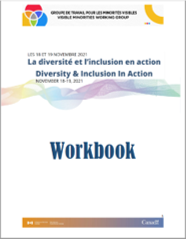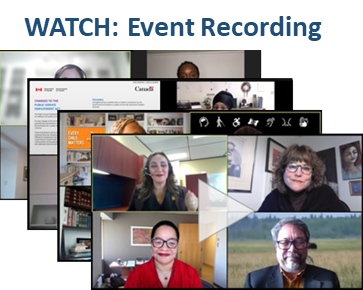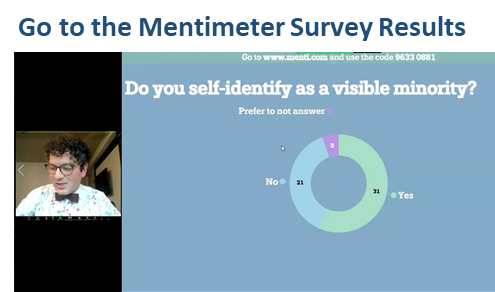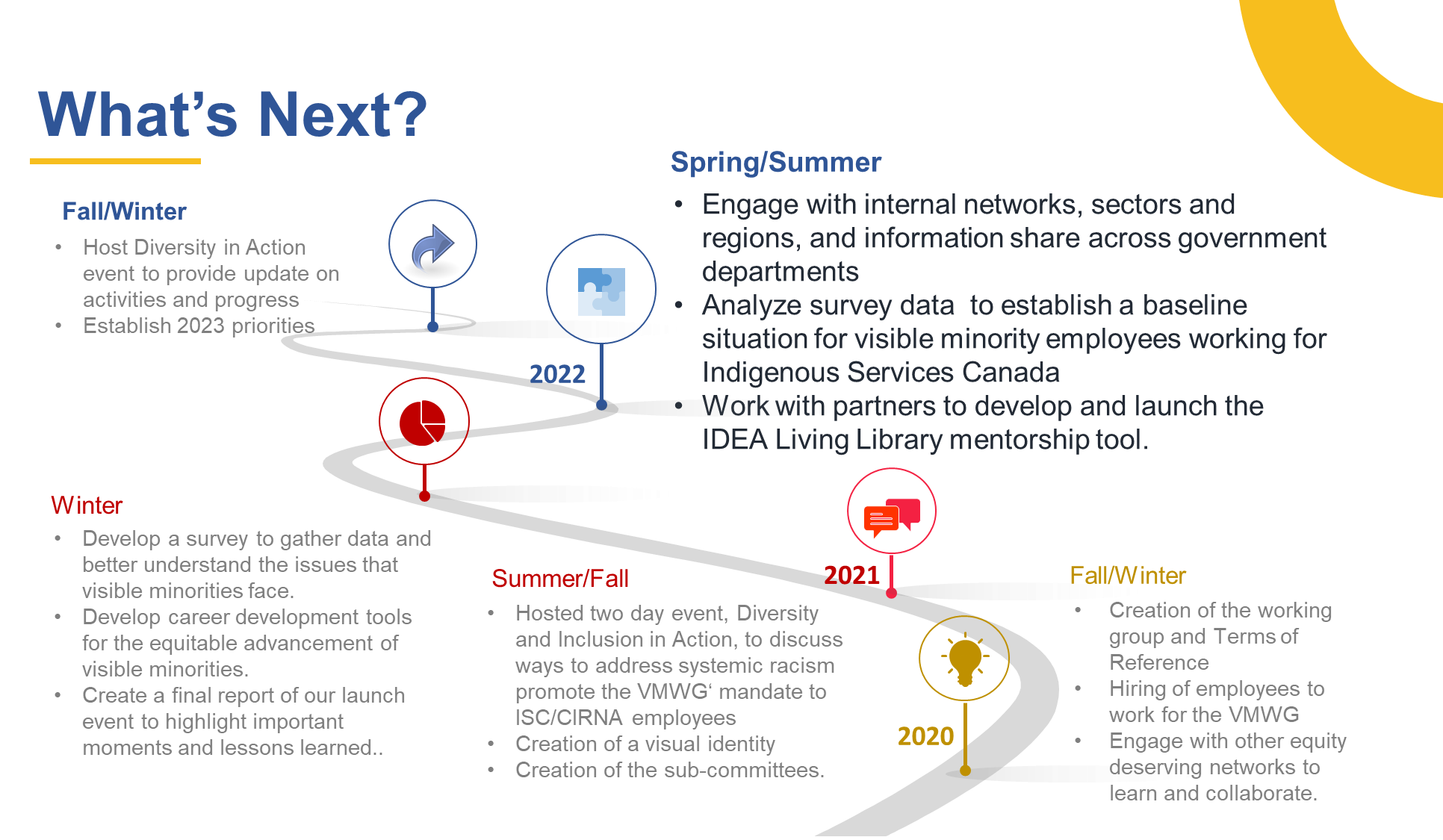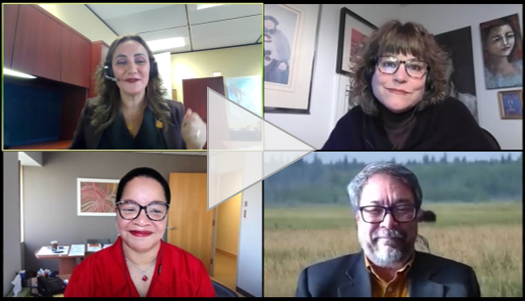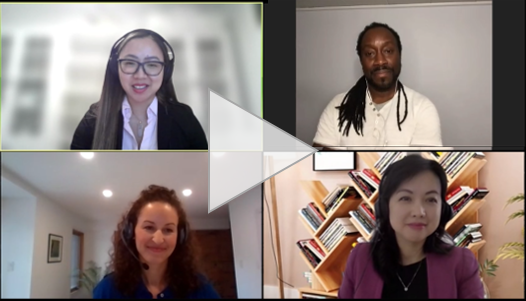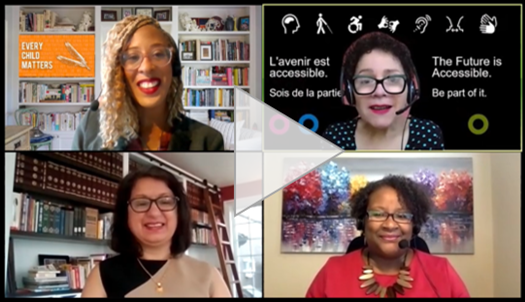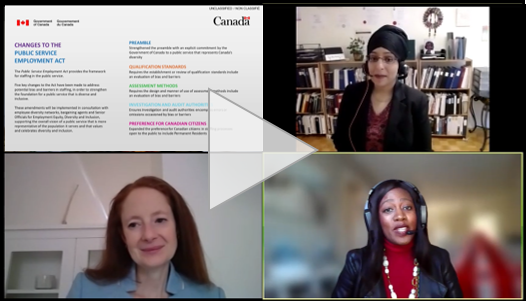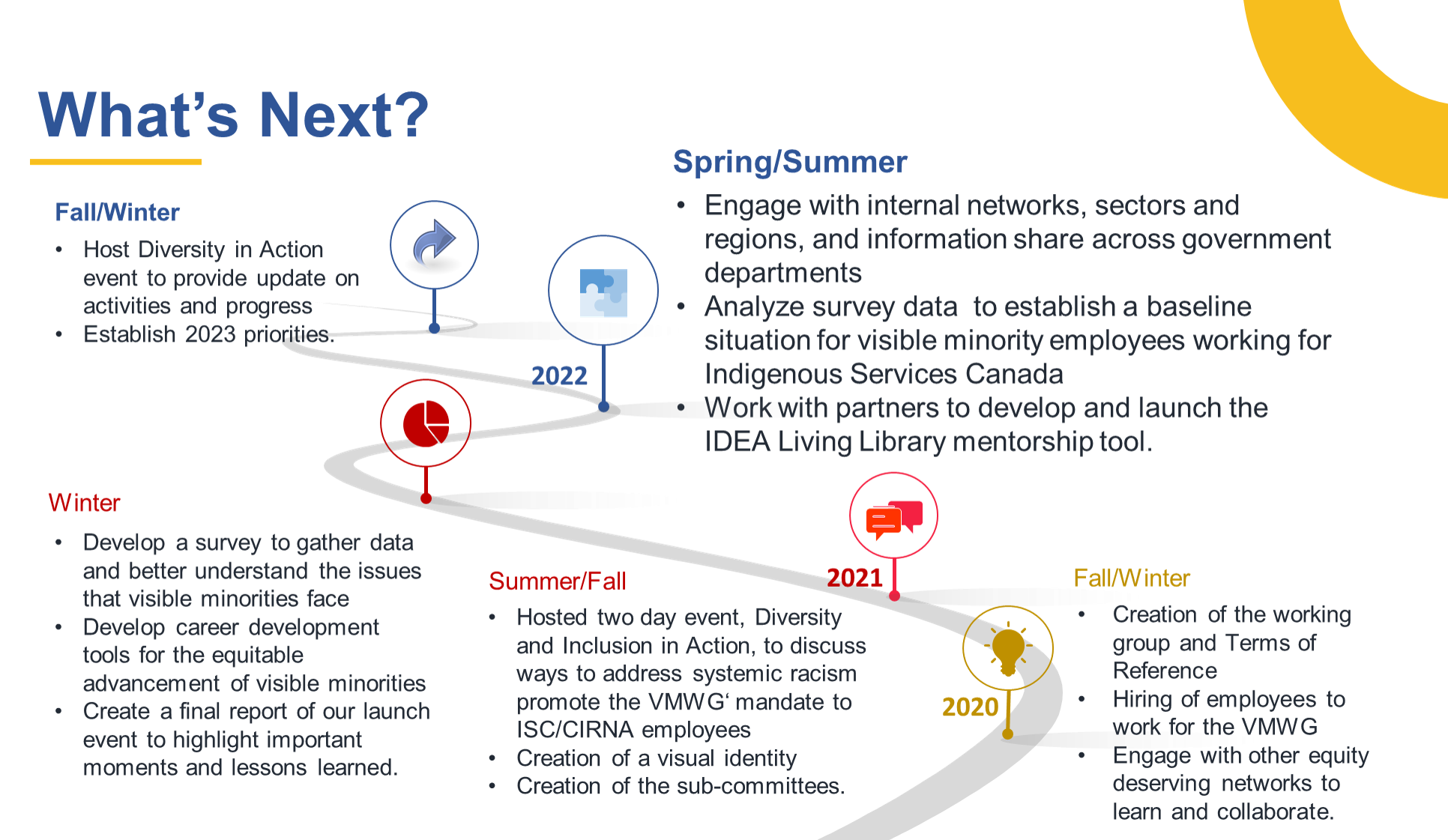Important: The GCConnex decommission will not affect GCCollab or GCWiki. Thank you and happy collaborating!
Difference between revisions of "User:Diversity & Inclusion in Action - event summary"
Taiwo.lewis (talk | contribs) |
Taiwo.lewis (talk | contribs) |
||
| Line 41: | Line 41: | ||
While the need for Diversity and Inclusion policy has become a talking point in the past year, Canada has been legislated to improve public sector workforce diversity since 1995, via the Employment Equity Act. What actions are needed to accelerate this work, and how do we ensure sustainable change that is realized at all levels of the Department? | While the need for Diversity and Inclusion policy has become a talking point in the past year, Canada has been legislated to improve public sector workforce diversity since 1995, via the Employment Equity Act. What actions are needed to accelerate this work, and how do we ensure sustainable change that is realized at all levels of the Department? | ||
| − | |||
| − | |||
| Line 82: | Line 80: | ||
In the absence of specific goals and a government-wide framework, it is difficult to determine whether current initiatives to strengthen diversity and inclusion are succeeding in reducing or eliminating systemic barriers. How can we leverage existing data and experience to create a Diverse and Inclusive Workplace? | In the absence of specific goals and a government-wide framework, it is difficult to determine whether current initiatives to strengthen diversity and inclusion are succeeding in reducing or eliminating systemic barriers. How can we leverage existing data and experience to create a Diverse and Inclusive Workplace? | ||
| − | |||
| − | |||
| Line 102: | Line 98: | ||
Earlier this year, the Treasury Board announced it is working with Employment and Social Development Canada on the review of the Employment Equity Act “to ensure that the public service applies appropriate benchmarks for diversity.” What kind of targets are supporting this work and what approaches are under consideration? | Earlier this year, the Treasury Board announced it is working with Employment and Social Development Canada on the review of the Employment Equity Act “to ensure that the public service applies appropriate benchmarks for diversity.” What kind of targets are supporting this work and what approaches are under consideration? | ||
| − | |||
| − | |||
Revision as of 18:36, 10 January 2022
EVENT OVERVIEW
Diversity and Inclusion in Action brought together speakers from a range of background and expertise, to discuss how we can begin to move the forward with meaningful and impactful policy that supports all employees in the federal service.
To supplement the information that was shared by our panels, we created a workbook that poses questions to help you think about how you are going to apply the ideas and concepts that have been raised, within your individual teams and larger organizations. There is no expectation that you share the information you record and we hope that this can be a tool to support learning, retention and inspire engagement. Click on the link below to download a copy of the workbook.
Dear Colleagues:..
Since taking on the role of Interim Clerk of the Privy Council, advancing the Call to Action has been one of my top priorities. I am encouraged to see the Deputy community taking action to make meaningful change, as well as the level of engagement among managers and the human resources community.
I am particularly inspired by my conversations with the employee networks and communities and hearing from individual employees who are sharing personal experiences and knowledge to support deeper understanding, and sparking conversations and action across the Public Service.
A number of public servants have shared with me that they welcome the change they see in leadership’s tone and approach. I have also heard that barriers remain and entrenched mindsets are obstacles to necessary progress.
To make real progress, we need to learn from one another…
This is a chance to take stock of what you are doing, what is working, what is not, and how you are measuring progress. The goal is to learn from each other, surface key challenges, and identify best practices to tackle barriers and generate and sustain the momentum necessary to achieve meaningful results.
Above all, I am hoping for an authentic and transparent account of how your organization is progressing on anti-racism, equity and inclusion, and one that reflects the perspectives of employee communities and networks. Success requires us to do things differently, and this extends to the way we share our progress.
Janice Charette
Interim Clerk of the Privy Council and Secretary to the Cabinet
PANEL DISCUSSIONS (RECORDED)
PANEL 1: DIVERSITY AND INCLUSION IN ACTION
While the need for Diversity and Inclusion policy has become a talking point in the past year, Canada has been legislated to improve public sector workforce diversity since 1995, via the Employment Equity Act. What actions are needed to accelerate this work, and how do we ensure sustainable change that is realized at all levels of the Department?
Panelists:
Daniel Quan-Watson - Deputy Minister of Crown-Indigenous Relations and Northern Affairs, and Champion for Visible Minorities for the Federal Public Service
Christine Donoghue - Chief Human Resources Officer, Treasury Board Secretariat
Dr. Denise O. Green – Vice-President, Equity and Community Inclusion, Ryerson University
Moderated by Kenza, El Bied, Champion for Visible Minorities, Indigenous Services Canada
__________________________________________________________________________________________
PANEL 2: CULTURAL CHANGE
This discussion explored what is at the root of cultural change, and what elements are needed to develop a strategy that promotes meaningful systemic transformation.
Panelists:
Richard Sharpe – Director, Anti-Racism and Anti-Discrimination Secretariat at Justice Canada
Kristy Payne – Chief Operations Officer at Hill + Knowlton Strategies
Anne-Marie Pham - Executive Director at Canadian Centre for Diversity and Inclusion
Moderated by Clara Wong, Visible Minority Working Group
__________________________________________________________________________________________
PANEL 3: CREATING A DIVERSE AND INCLUSIVE WORKPLACE
In the absence of specific goals and a government-wide framework, it is difficult to determine whether current initiatives to strengthen diversity and inclusion are succeeding in reducing or eliminating systemic barriers. How can we leverage existing data and experience to create a Diverse and Inclusive Workplace?
Panelists:
Yazmine Laroche - Deputy Minister, Public Service Accessibility, Treasury Board Secretariat of Canada
Paule-Anny Pierre - Assistant Deputy Minister, Treasury Board of Canada Secretariat
Manju Varma - Commissioner on Systemic Racism for the Government of New Brunswick & Former Senior Advisor, Office of Inclusion, Equity and Anti-racism at Atlantic Canada Opportunities Agency
Moderated by Taiwo Lewis, Visible Minorities Working Group
__________________________________________________________________________________________
PANEL 4: CHANGES IN LEGISLATION, POLICIES & PROGRAMS & THEIR IMPACT
Earlier this year, the Treasury Board announced it is working with Employment and Social Development Canada on the review of the Employment Equity Act “to ensure that the public service applies appropriate benchmarks for diversity.” What kind of targets are supporting this work and what approaches are under consideration?
Panelists:
Gaveen Cadotte – Vice President, Policy and Communications Sector, Public Service Commission of Canada
Selena Beattie - Executive Director of People Management and Community Engagement, Treasury Board of Canada Secretariat
Moderated by Navip-Kaur Singh, Visible Minority Working Group
MENTIMETER RESULTS
NEXT STEPS
In 2022, Working Group members are particularly focused on the development of a unique mentorship tool designed to remove barriers to career development supports. Members are also conducting an employee engagement survey to gain an understanding of the priorities for visible minority employees in Indigenous Services Canada and set priorities into the future.

